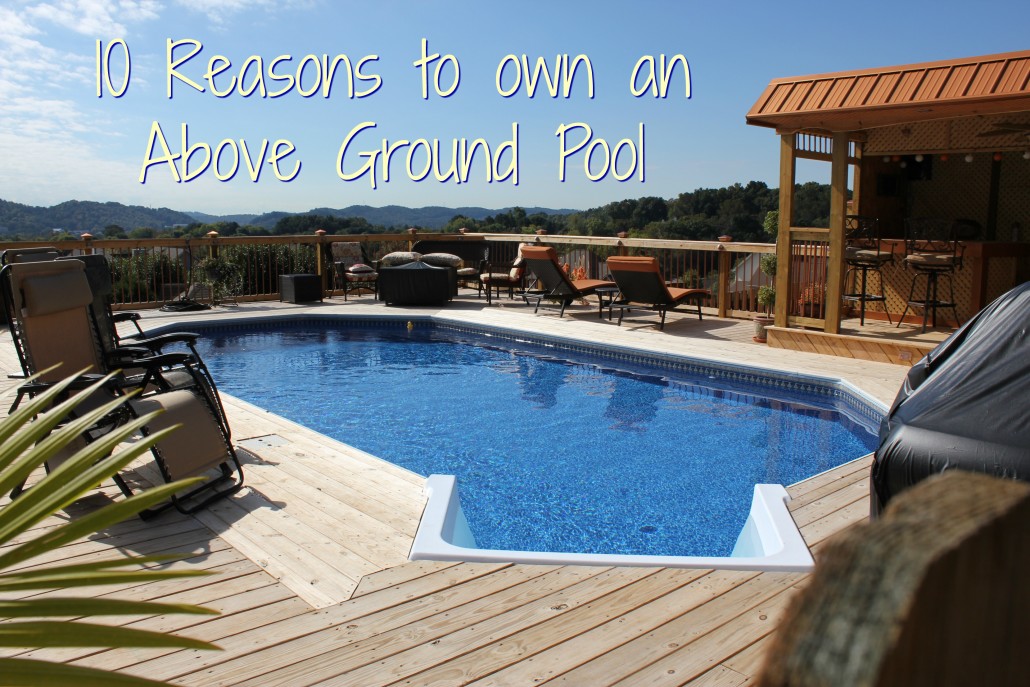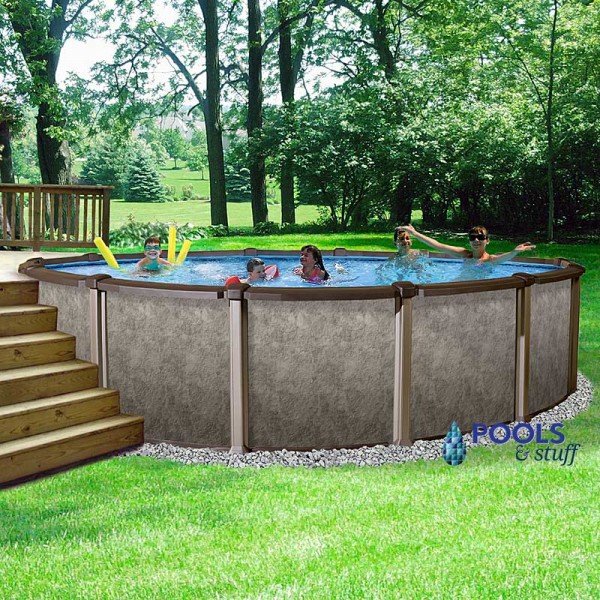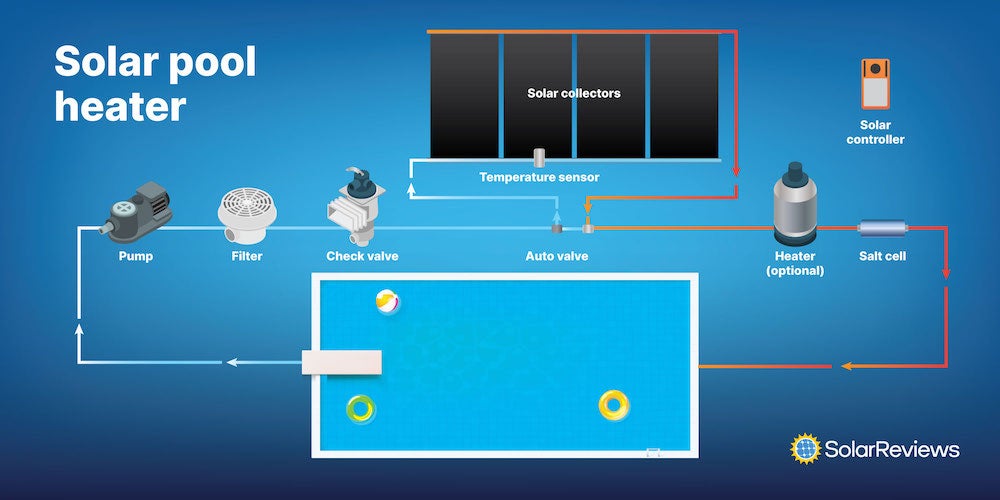Have you ever wondered whether it’s necessary to run your pool pump while enjoying a refreshing swim? In this article, we explore the importance of running your pool pump while swimming and uncover the benefits it provides for both the health of your pool and the safety of your swimmers. Discover why keeping your pool pump running while taking a dip is a smart choice that ensures crystal-clear waters and a pristine swimming experience.
Benefits of Running Pool Pump While Swimming
Improves Water Circulation
Running the pool pump while swimming offers significant benefits, starting with improved water circulation. When the pump is operational, it creates a continuous flow of water throughout the pool, which helps to prevent stagnant areas and dead spots. This ensures that the water is evenly distributed and properly filtered, ultimately leading to a more enjoyable and comfortable swimming experience.
Efficient Filtration
Another advantage of running the pool pump while swimming is efficient filtration. The pump plays a crucial role in driving water through the filtration system, where impurities and debris are captured, leaving the water clean and clear. By continuously circulating the water, the pool pump helps to optimize the filtration process, ensuring that even the tiniest particles are captured, maintaining optimal water quality.
Enhanced Water Clarity
Running the pool pump while swimming is also beneficial in terms of water clarity. By continuously circulating the water, the pump helps to disperse chemicals evenly, preventing any concentration of chemicals in specific areas. This promotes consistent water balance, reducing the chances of cloudiness or discoloration. As a result, swimmers can enjoy crystal clear water that is visually appealing and inviting.
Prevents Algae Growth
Algae growth is a common issue faced by pool owners. However, by running the pool pump while swimming, you can significantly reduce the risk of algae growth. The continuous circulation of water ensures that algae spores are not given a chance to settle and grow. Additionally, the pump helps to distribute chlorine and other sanitizers evenly, further inhibiting the growth of algae. This proactive approach to algae prevention helps to maintain a clean and algae-free pool environment.
Potential Risks of Running Pool Pump While Swimming
Safety Hazards
While there are numerous benefits to running the pool pump while swimming, it is essential to be aware of the potential risks involved. One concern is related to safety hazards. Pool pumps generate powerful suction, which could pose a danger to swimmers if they come into contact with the intake or drain covers. To minimize the risk, it is crucial to have proper safety barriers in place and to ensure that the pool area is clear of any potential obstructions.
Increased Energy Consumption
Another consideration is the increased energy consumption associated with running the pool pump continuously while swimming. Pool pumps are generally one of the most energy-intensive components of a swimming pool system. Running the pump for extended periods can result in higher electricity bills. It is essential to factor in the energy costs and consider energy-saving alternatives to mitigate the impact on your utility expenses.
Noise Disturbance
Running the pool pump can generate noise, which may cause disturbances if you prefer a quiet and peaceful swimming experience. The noise emitted by the pump can vary depending on the model and location of the pool equipment. If noise is a concern, it is advisable to explore pump models specifically designed for quieter operation or consider using timers to schedule pump operation during less active periods.
Chemical Imbalance
Continuous pump operation can also lead to chemical imbalances in the pool. When the pump runs, the circulation of water disrupts the chemical balance, potentially causing fluctuations in chlorine levels, pH levels, and other chemical parameters. It is crucial to monitor and adjust the chemical levels accordingly to maintain optimal water balance. Regular water testing and adjustments are necessary to ensure the safety and comfort of swimmers.
This image is property of images.pexels.com.
Considerations for Running Pool Pump While Swimming
Pool Size and Design
The size and design of your pool play a significant role in determining whether running the pool pump while swimming is necessary or beneficial. Larger pools with complex designs may require more extensive circulation to ensure proper mixing of chemicals and filtration. Additionally, pools with features such as waterfalls or fountains may benefit from the continuous pump operation to maintain optimal water clarity and circulation.
Swimming Schedule
The frequency and duration of swimming sessions should also be considered when deciding to run the pool pump. If you swim infrequently or for shorter durations, it may not be necessary to run the pump continuously while swimming. However, if you have regular, extended swimming sessions, it is advisable to keep the pump running to ensure continuous water circulation and filtration.
Personal Preferences
Your personal preferences also play a role in determining whether to run the pool pump while swimming. Some individuals may enjoy the sound of the pump or find comfort in the knowledge that the water is constantly being filtered. Others may prefer a quiet and serene swimming environment, which may necessitate adjusting pump operation. Considering your preferences will help strike a balance between the benefits and potential downsides.
Environmental Impact
The environmental impact should be taken into account when deciding to run the pool pump while swimming. Continuous pump operation consumes energy, contributing to carbon emissions and environmental strain. If you are conscious of your environmental footprint, you may wish to explore energy-saving alternatives or limit pump operation to reduce energy consumption.
Energy-saving Alternatives
To minimize the energy consumption associated with running the pool pump while swimming, several alternatives can be considered. Upgrading to variable speed pumps allows for better control of pump speed, reducing energy usage when moderate circulation is sufficient. Installing timers allows for scheduled pump operation during off-peak hours, taking advantage of lower electricity rates. Additionally, using pool covers can help retain heat and reduce evaporation, leading to reduced pump operation needs.
Factors Affecting Pool Pump Operation
Water Temperature
Water temperature is a crucial factor that can impact pool pump operation. Warmer water tends to accelerate chemical reactions and foster bacterial and algae growth. As a result, the pool pump may need to run for longer durations to maintain water clarity and sanitation in warmer climates or during hot summer months. Conversely, cooler water may require shorter pump runtimes as the growth of bacteria and algae slows down.
Free Chlorine Levels
The amount of free chlorine in the pool water affects the pump operation requirements. Lower chlorine levels may necessitate longer pump runtimes to ensure sufficient sanitization and water clarity. Conversely, higher chlorine levels allow for shorter pump runtimes, as the excess chlorine can compensate for shorter filtration cycles. Regular testing of free chlorine levels can help determine the appropriate pump operation time.
Filter Type and Condition
The type and condition of the pool filter also influence pump operation. Different filter types, such as sand, cartridge, or diatomaceous earth (DE) filters, have varying capacities and flow rates. Understanding the capabilities of your filter and maintaining its condition is essential for optimal pump operation. Regular cleaning and backwashing of the filter, as recommended by the manufacturer, will ensure efficient filtration and minimize the need for extended pump runtimes.
Bather Load
The number of swimmers using the pool, also known as the bather load, affects the pump operation requirements. A higher bather load introduces more organic matter, such as sweat, oils, and sunscreen, into the pool water. This can lead to increased chlorine demand and reduced water clarity. Running the pump consistently while there are many swimmers in the pool helps to maintain adequate filtration and sanitation levels.
Weather Conditions
Weather conditions, such as strong wind, heavy rain, or intense heat, can impact pump operation requirements. Wind can introduce debris into the pool, necessitating longer pump runtimes to capture and remove the debris. Heavy rain may dilute the chemical balance, requiring additional filtration and chemical adjustment. Intense heat can accelerate the growth of bacteria and algae, leading to longer pump runtimes for maintenance.
This image is property of images.pexels.com.
Determining Optimal Pump Operation Time
Recommended Pump Runtime
The ideal pump runtime depends on several factors, including pool size, bather load, weather conditions, and water temperature. As a general guideline, a pump runtime of 6 to 8 hours per day is recommended for most residential pools. However, it is crucial to monitor the water quality regularly and adjust the pump runtime as needed. Consulting with a pool professional or utilizing online pool calculators can help determine the optimal runtime for your specific pool.
Pump Speed and Duration
Variable-speed pumps offer greater flexibility in adjusting pump speed and duration. Slower pump speeds reduce energy consumption while still maintaining adequate filtration and circulation. It is advisable to start with a lower pump speed and gradually increase it until desired water circulation and filtration are achieved. Finding the right combination of pump speed and duration ensures efficient operation while minimizing energy usage.
Off-peak Electricity Rates
Taking advantage of off-peak electricity rates can help reduce the cost of running the pool pump. Many utility companies offer lower rates during non-peak hours, typically late evening or overnight. By programming the pump to run during these off-peak hours, pool owners can reduce their energy expenses. It is recommended to check with the local utility provider for specific off-peak rate schedules and considerations.
Professional Recommendations
Advice from Pool Experts
When in doubt, seeking advice from pool experts can provide valuable insights and recommendations for running the pool pump while swimming. Pool professionals have experience dealing with various pool types and configurations and can offer tailored advice based on your specific circumstances. Whether it is regarding pump operation, energy-saving options, or water quality maintenance, consulting with experts can help you make informed decisions.
Consulting Pool Supply Stores
Pool supply stores are another valuable resource for guidance on pool pump operation and maintenance. Store staff members are knowledgeable about different pump models, filtration options, and energy-saving accessories. They can offer recommendations based on your pool’s specific needs and budget. Pool supply stores often have access to product manuals, instructional materials, and troubleshooting services, further assisting you in optimizing your pump operation.
Seeking Assistance from Pool Service Companies
If you prefer a hands-off approach to pool maintenance, pool service companies can provide assistance in determining the optimal pump operation time and managing other aspects of pool maintenance. These companies specialize in comprehensive pool care, offering services such as regular maintenance, water testing, chemical balancing, and pump optimization. By delegating pool maintenance to professionals, you can ensure that your pool operates efficiently and safely.
This image is property of images.pexels.com.
Maintaining Water Quality
Proper Chemical Balance
Maintaining proper chemical balance is paramount for achieving and sustaining excellent water quality. Regularly testing the pool water and adjusting the chlorine, pH, alkalinity, and other chemical levels are essential tasks. This ensures effective sanitization, prevents algae growth, and promotes overall water clarity. Following a consistent chemical maintenance routine, in conjunction with running the pool pump, helps to keep the water safe, inviting, and enjoyable for swimmers.
Regular Skimming and Cleaning
Regular skimming and cleaning of the pool surface and removing debris contribute to water clarity and proper filtration. Skimming the surface using a skimmer net helps to remove leaves, insects, and other floating objects. Vacuuming the pool floor, steps, and walls removes settled dirt and debris. By minimizing debris in the pool, the filter can operate more efficiently, reducing the strain on the pump and promoting cleaner water.
Effective Use of Pool Covers
Using pool covers not only helps keep the pool clean but also reduces evaporation and heat loss. By covering the pool when not in use, you can prevent leaves and debris from entering the water, reducing the load on the pump and filter. Additionally, covering the pool at night or during cooler periods helps to retain heat, reducing the need for extended pump operation to maintain water temperature. Investing in a quality pool cover can potentially save you money on energy and maintenance costs.
Weekly Pool Maintenance
In addition to ongoing chemical testing and adjustments, weekly pool maintenance is necessary to ensure optimal water quality. This includes brushing the pool walls and floor to remove algae buildup and dislodge potential contaminants. Backwashing the filter, when necessary, helps to restore proper flow and maintain filtration efficiency. Additionally, cleaning the skimmer baskets and pump strainer basket prevents blockages and ensures smooth pump operation.
Professional Pool Inspection
Periodic professional pool inspections offer an extra layer of assurance that your pool is operating at its best. Pool inspectors thoroughly examine the pool system, including the pump, filtration, and plumbing, to identify any potential issues or areas for improvement. They can provide recommendations for optimized pump operation, equipment upgrades, and maintenance practices. Availing professional pool inspection services can help you proactively address any concerns and maintain water quality.
Safety Measures for Running Pool Pump While Swimming
Installing Safety Barriers
Installing safety barriers around the pool is essential when running the pool pump while swimming. Safety barriers can prevent direct access to the pump equipment, reducing the risk of accidents or injuries. Fencing, walls, or gates with self-locking mechanisms are some options to consider. By ensuring proper safety measures, you can create a protected pool area and enjoy peace of mind while swimming.
Ensuring Proper Pool Drainage
Proper pool drainage is crucial for safe pump operation while swimming. If your pool has a main drain, ensure that it is fitted with a compliant, anti-entrapment cover to prevent swimmers from getting caught in the suction. Regular maintenance and inspection of drainage systems are necessary to identify and address any potential issues promptly. A well-maintained and properly functioning drainage system is essential for safe pump operation.
Clear Pool Area of Obstacles
It is essential to keep the pool area free of any obstacles or trip hazards when running the pump while swimming. Clearing the pool deck of toys, furniture, or any other items minimizes the risk of accidents or injuries. Additionally, removing debris, such as fallen leaves or branches, ensures efficient pump operation and prevents clogging of the filtration system. A clean and obstacle-free pool area ensures a safe and enjoyable swimming environment.
Supervising Children and Weak Swimmers
Maintaining constant supervision of children and weak swimmers is crucial when the pool pump is running. The powerful suction of the pump can pose a danger if a swimmer comes into contact with it. Active supervision, even when the pool pump is running, helps ensure the safety of all swimmers. Children and weak swimmers should always be closely monitored and should never swim near the intake or drain covers.
Energy-saving Tips for Pool Owners
Utilizing Variable Speed Pumps
Investing in a variable-speed pump is a wise choice for energy-conscious pool owners. Variable-speed pumps allow for greater control over pump speed, enabling you to adjust the speed according to the desired water circulation and filtration requirements. By operating the pump at lower speeds, energy consumption is significantly reduced, resulting in cost savings while maintaining optimal pool operation.
Implementing Timers
Using timers for pool pump operation can help manage energy consumption effectively. By programming the pump to operate during specific time windows, especially during off-peak electricity rates, you can minimize energy usage. Timers allow for automation of pump operation, ensuring consistent circulation and filtration without the need for manual control.
Operating During Off-peak Hours
Operating the pool pump during off-peak hours is a simple and effective energy-saving strategy. Many utility companies offer lower electricity rates during non-peak hours, typically late at night or early morning. By taking advantage of these off-peak rates, you can reduce the cost of running the pool pump without compromising water quality or filtration efficiency.
Regular Pump Maintenance
Regular pump maintenance is crucial for optimal performance and energy efficiency. Staying on top of pump maintenance tasks, such as cleaning the pump basket, checking for leaks, and ensuring proper lubrication, helps to prevent mechanical issues and maximize pump longevity. A well-maintained pump operates more efficiently, resulting in energy savings and reduced operational costs.
Pool Cover Usage
Pool covers are an effective energy-saving tool for pool owners. By covering the pool when not in use, you can minimize heat loss and evaporation. Retaining heat reduces the need for extended pump operation to maintain water temperature, resulting in energy savings. Additionally, covering the pool prevents debris from entering the water, reducing the load on the pump and filtration system.
Conclusion
In conclusion, the decision to run your pool pump while swimming depends on various factors, including personal preferences, pool size, swimming schedule, and environmental considerations. While keeping the pool pump running offers benefits such as improved water circulation, efficient filtration, enhanced water clarity, and algae prevention, it is essential to be aware of potential risks and take necessary safety precautions. Factors including water temperature, free chlorine levels, filter type and condition, bather load, and weather conditions influence pump operation requirements. Determining the optimal pump operation time, seeking professional recommendations, and maintaining water quality help ensure a safe and enjoyable swimming experience. Energy-saving tips and practices, such as utilizing variable speed pumps, timers, off-peak operation, regular pump maintenance, and pool cover usage, contribute to reducing energy consumption and costs. By evaluating your pool’s specific needs, considering personal preferences, observing energy-saving practices, and following safety guidelines, you can make informed decisions regarding running the pool pump while swimming.








